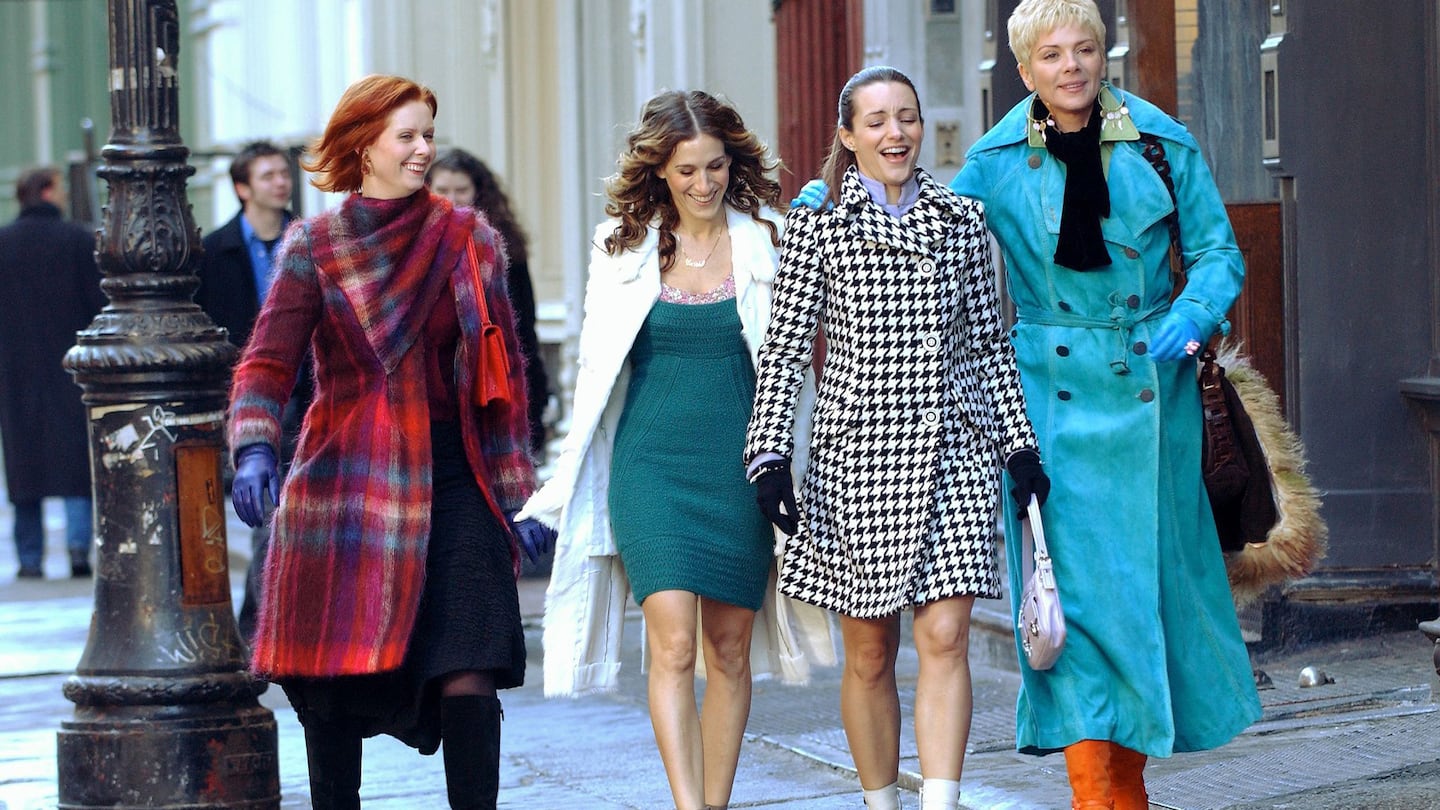
The Business of Fashion
Agenda-setting intelligence, analysis and advice for the global fashion community.

Agenda-setting intelligence, analysis and advice for the global fashion community.

Since its inception, television has been a sort of in-house, always-on, pro bono stylist, shaping how much of America dresses and beckoning us to get out and shop.
In 1953, Lucille Ball launched the $18 billion maternity wear industry when she refused to conceal her pregnancy on “I Love Lucy.” When disco dominated the 70s, we’d go dancing five nights a week, taking our sartorial cues from “Soul Train.” In the 80s, women found assurance that more is more in the television series “Dynasty,” while male lawyers yearned to cast off their pinstripes for the sherbet-coloured linen jackets Don Johnson wore on “Miami Vice.”
And has there ever been anyone whose passion for shopping triggered more cravings than Sarah Jessica Parker’s Carrie Bradshaw character on Sex and the City?
If television has historically held a monopoly on style guidance, there’s no doubt that in recent years platforms like Instagram have become hugely influential with shoppers. But in the age of social media, TV’s power over how we regard fashion, beauty and style remains potent. It’s why Tory Burch kept selling out of Kerry Washington’s white, double-breasted trench coat during seven seasons of Scandal, and how the voluminous pink tulle Molly Goddard gown that Jodie Comer wore on Killing Eve became the chicest Halloween costume of 2018.
ADVERTISEMENT
As I outline in my recent book, “Dressing the Part: Television’s Most Stylish Shows,” the key to television’s power is the difference between fashion and costume design. The predominantly young, tech-savvy influencers on social media are eager to give advice and adept at selling stuff. And usually, the stuff looks great on them — as their incessant selfies attest — but what do you know about these influencers besides their surface adorability?
Even when costume design requires the intense wizardry of couture, its inspiration is always rooted in defining character. We don’t see Burch’s white trench belted round an opaque mannequin or some selfie snapper. That trench tops the uniform of one fierce, wickedly smart, take-no-prisoners, get-off-my-runway, lawyer who now “fixes” other people’s carelessness. And when Kerry Washington, the rest of the cast and costume designer Lyn Paolo live tweeted about Olivia Pope’s on-screen outfits, it broke the internet, not just because women wanted a knockout trench, but because they hoped some of the fierce confidence of that “fixer” might still be clinging to the fabric.
Smart costumes give us a clue as to who the wearer is even before we hear one word and are usually worn in a relatable semblance of reality. Consequently, when viewers grow to admire — even love — a character, they start to repeat their idol’s catchphrases, adopt their body language, and set off in pursuit of clothes that help them to dress the part.
“Identification + style = transference.” It’s why “Bridgerton,” Shonda Rhimes’ smashing series about love among the aristocracy in the early 19th century, with its deliberately modern take on period dressing, punchy musical soundtrack and colour-blind casting, hair and make-up, generated double and triple digit increases in online searches for corset dresses, velvet and Empire gowns, cropped men’s blazers, opera length gloves and military jackets, all of which are showing up on red carpets this season.
And who couldn’t see a through line from “RuPaul’s Drag Race” to Timothée Chalamet in a red, sequinned backless jumpsuit at the Venice Film Festival; Dwayne Johnson in a pink satin tuxedo at the Oscars; and Justin Timberlake in a large pearl necklace on Saturday Night Live.
It’s been 20 years since “Friends” shut down production, yet millions of women still have their hair cut in a “Rachel,” not necessarily to look more like Jennifer Aniston, but so that maybe, hopefully, wouldn’t it be lovely if one could attract besties as nice as hers? Instagram offers you followers. Facebook pretends you have friends. The narrative power of television seduces you into believing it’s possible. And that’s worth getting dressed up for.
Hal Rubenstein is the author of Dressing the Part: America’s Most Stylish Shows.
The views expressed in Op-Ed pieces are those of the author and do not necessarily reflect the views of The Business of Fashion.
How to submit an Op-Ed: The Business of Fashion accepts opinion articles on a wide range of topics. The suggested length is 700-1000 words, but submissions of any length within reason will be considered. All submissions must be original and exclusive to BoF. Submissions may be sent to opinion@businessoffashion.com. Please include ‘Op-Ed’ in the subject line and be sure to substantiate all assertions. Given the volume of submissions we receive, we regret that we are unable to respond to all emails.
The stylist is set to unveil a bi-annual print magazine and digital platform, with a team that includes Holly Shackleton and Fran Burns.
Luxury book publishers — and husband and wife — Prosper and Martine Assouline join BoF founder and editor-in-chief Imran Amed to discuss the genesis of their publishing business and how they are growing it into a global lifestyle brand.
Now under the ownership of British publisher Future, both Marie Claire and WhoWhatWear are contending with how to grow their new parent’s US operations in the ever-challenging media landscape.
Fast Company has named The Business of Fashion one of the ‘world’s most innovative companies’ for a second time for demonstrating ‘how a media brand can leverage AI to add reader value rather than erode trust with AI-written news articles.’